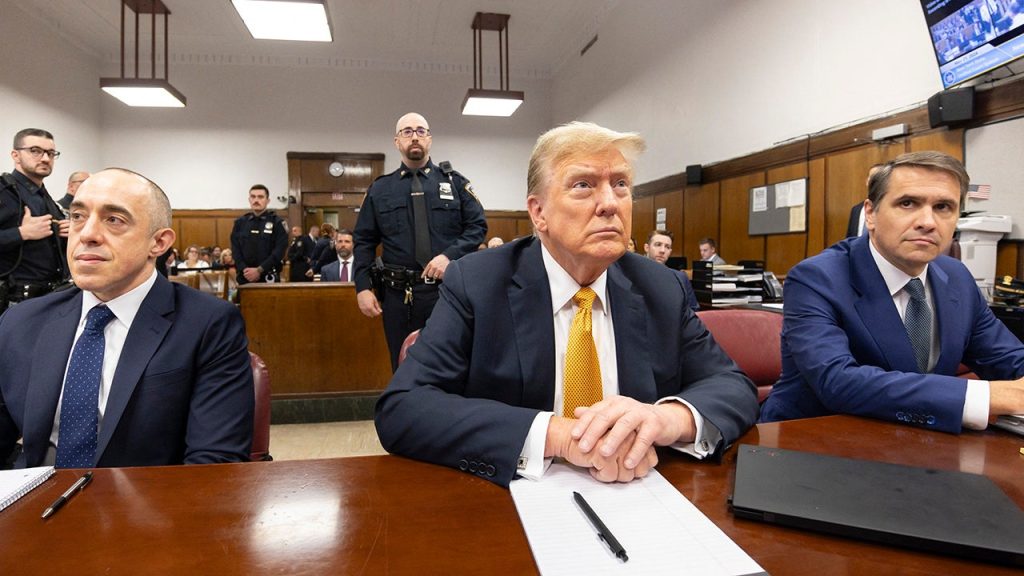Defense attorneys for former President Donald Trump argued his innocence in a trial where he was charged with 34 counts of falsifying business records in the first degree. The prosecution needed to prove beyond a reasonable doubt that Trump falsified records to conceal a payment to Stormy Daniels, a pornographic performer, in the lead-up to the 2016 election. Trump pleaded not guilty and proclaimed his innocence. The defense attorney, Todd Blanche, emphasized that the burden of proof had not been met by the district attorney and stated that the charges were about documents and not about past encounters or agreements. Blanche argued that there was no intent to defraud and no conspiracy to influence the 2016 election in the case.
Blanche highlighted that the payments to Trump’s ex-attorney, Michael Cohen, were accurately booked and that there was no evidence of intent to defraud in the records. He argued that Cohen’s testimony could not be relied upon as he had lied on the stand and emphasized that the checks to Cohen were not signed by Trump. Blanche also questioned the idea that Trump would agree to pay Cohen more than what was owed, stating that there was no proof of “grossing up” the payments. He stressed that the prosecution needed to prove intent to defraud, and asked the jury to consider whether there was evidence of such intent. Additionally, Blanche pointed out that the payments were reported accurately on tax forms, indicating no intention to deceive.
Regarding the alleged “catch and kill” scheme with the National Enquirer, Blanche argued that the arrangements were legal and common in the industry. He dismissed the idea that positive stories in the publication could have influenced the 2016 election as preposterous. Blanche also cast doubt on Cohen’s credibility, labeling him as a habitual liar and suggesting that his testimony should not be the basis for convicting Trump. He urged the jury to focus on the evidence presented in the case and not be swayed by testimonies from unreliable witnesses like Cohen. Blanche emphasized that a verdict should be based on concrete evidence rather than the words of a deceitful individual.
Blanche pointed out that Cohen had a history of dishonesty, having lied to various authorities in the past. He called Cohen the “greatest liar of all time” and cautioned the jury against relying on his testimony to reach a verdict. Blanche reiterated that the case against Trump was not supported by the evidence presented and that the jury should consider all the facts before making their decision. He stressed the importance of scrutinizing the documents and witnesses in the case rather than being influenced by individuals with questionable integrity. Blanche concluded by urging the jury to deliver a quick and easy not guilty verdict based on the lack of evidence to support the charges against Trump.













